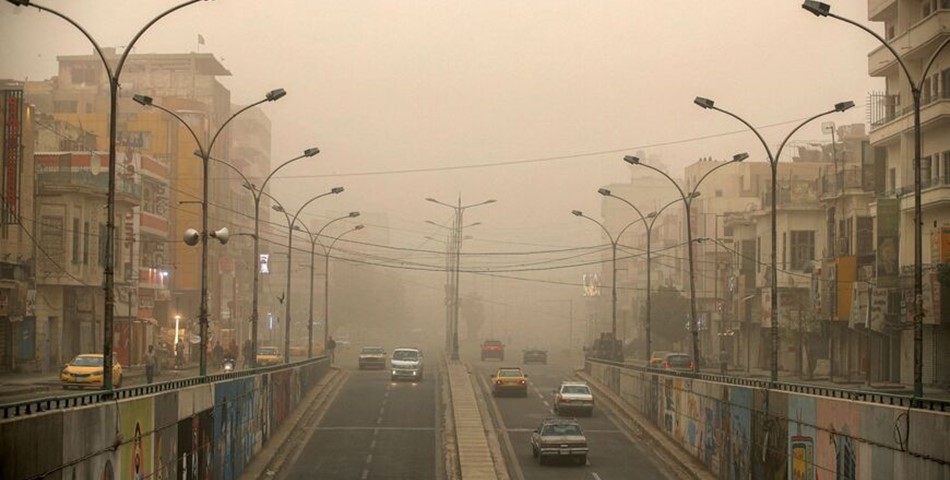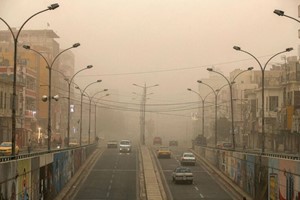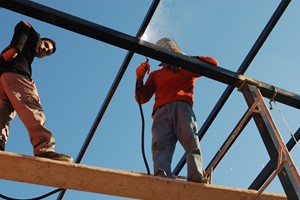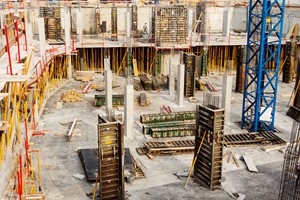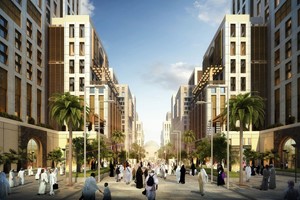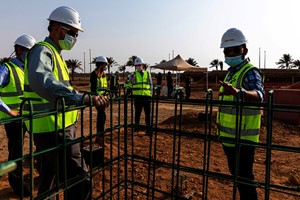Desertification has hit additional land areas in Iraq, which caused more dust storms to sweep through Iraqi cities, in the absence of the Green Belt project despite the huge sums allocated for its implementation.
Sand storms have become increasingly frequent in Iraq, hitting not only the vast deserts, but also Baghdad and other cities, blanketing houses, institutions, government headquarters and shops in yellow dust.
Videos show the cities’ residents cleaning their living rooms after the dust storm, which caused low visibility. The latest storm of May 5 has left many people with breathing difficulties, with 5,000 cases admitted into health care centers.
Iraqi Minister of Water Resources Hassan al-Janabi tweeted, “When I was buying bread, the baker may have lowered salt level in the dough, using instead the natural salty dust,” in a bid to describe the people’s sufferings.
Weather forecaster Sadiq Attia told Al-Monitor, “Dust storms are a natural phenomenon associated with other factors such as lack of rain, high temperatures, winds and the type of soil.” Iraq can learn from other countries’ experiences, he said, "by building artificial ponds and planting trees before the rainy season, in addition to the green belts around the cities so as to weaken the storms.”
He criticized government committees that hold meetings and take decisions that go unheeded, without any tangible activities despite the huge budgets allocated.
Iraq has been suffering from sand storms since at least the 1930s.
Hamid al-Nayef, official spokesman for the Ministry of Agriculture, told Al-Monitor, “Tackling desertification and dust storms is not the responsibility of only the Agriculture Ministry, given the huge resources required." Instead, he said, all ministries should coordinate on a national forestation program, with the Agriculture Ministry providing "studies, seedlings, windbreaks and irrigation techniques.”
To cover the costs, Nayef said the government should solicit investment companies and international organizations operating in Iraq. He added that the forestation program "should be independent, [implemented] by experts, and based on successful experiments.”
But Nayef admitted, “The green belt projects that were put forward in the past have not been implemented despite the huge amounts allocated, except in Karbala province where a green belt was set up around its center, although it is not up to the desired level.”
The agriculture ministry's budget, Nayef said, limits it to "the creation of small oases and is not up to the level of combating desertification. Iraq needs 15 billion trees in order to turn into a green environment.”
He further said that “the situation is getting worse due to water deficit, which caused the agricultural plan to be reduced by half. It is an obligation to conclude an agreement with the riparian countries, namely Turkey, Iran, and Syria, in order [for Iraq] to obtain its share of the water.”
Director of Al-Muthanna Environment Department Youssef Sawadi told Al-Monitor, “Iraq has been subjected to severe dust storms for more than a month.” But the cause he named was “the movement of military vehicles during the war against the Islamic State organization since 2014, and during the US invasion of Iraq in 2003.”
The country needs a water policy for the Tigris and Euphrates rivers, Sawadi said, using "modern technologies, the construction of dams and rainwater harvesting projects in the deserts.” He called for “investment in the Green Belt projects and the development of a vegetation cover. … Every citizen must plant at least one tree.”
Speaking to Al-Monitor, economist Manar al-Obeidi agreed with Sawadi on the projects’ failure. He said that in 2019, the Central Bank of Iraq, through the Tamkeen Fund, announced an initiative to plant more than 200,000 seedlings, but “what happened to this initiative and to the funds allocated? Two years have passed, which is the project’s implementation period, but no results have been achieved.”
Salah Alarbawi, head of Harakat al-Waei [National Awareness Movement] said that Iraq’s “successive governments do not attach importance to the environment.”
Political commentator Najm al-Qassab told Al-Monitor, “The dust revealed the shortcomings of many figures in the political class. Their family members are outside Iraq breathing fresh air and enjoying Iraq’s money.”
Abdel Zahra al-Hindawi, a spokesman for the Ministry of Planning, told Al-Monitor, “The Iraq Vision for Sustainable Development 2030, which the ministry prepared, includes a set of policies aimed at protecting the environment and combating climate change.” But “these policies must be implemented by the relevant authorities.”
Media figure and environmental activist Reem al-Rawi spoke to Al-Monitor about “the need to have a palm ministry with different directorates in the various provinces in order to plant forests that would generate revenues that compete with oil revenues. This is added to their role in eliminating desertification.” Yet, the crisis obviously requires quick and decisive decisions away from any routine practices and corruption.
By Adnan Abu Zeed




